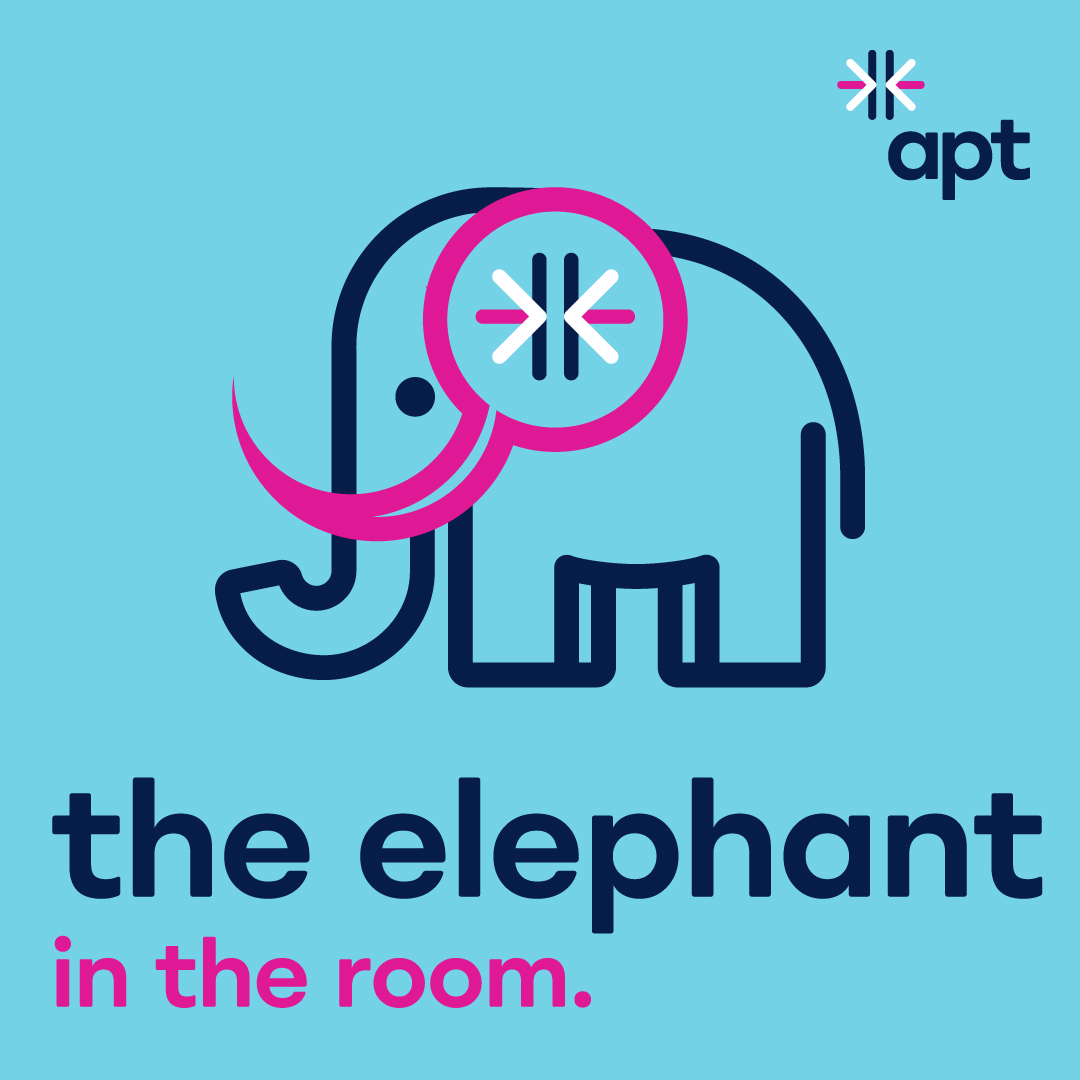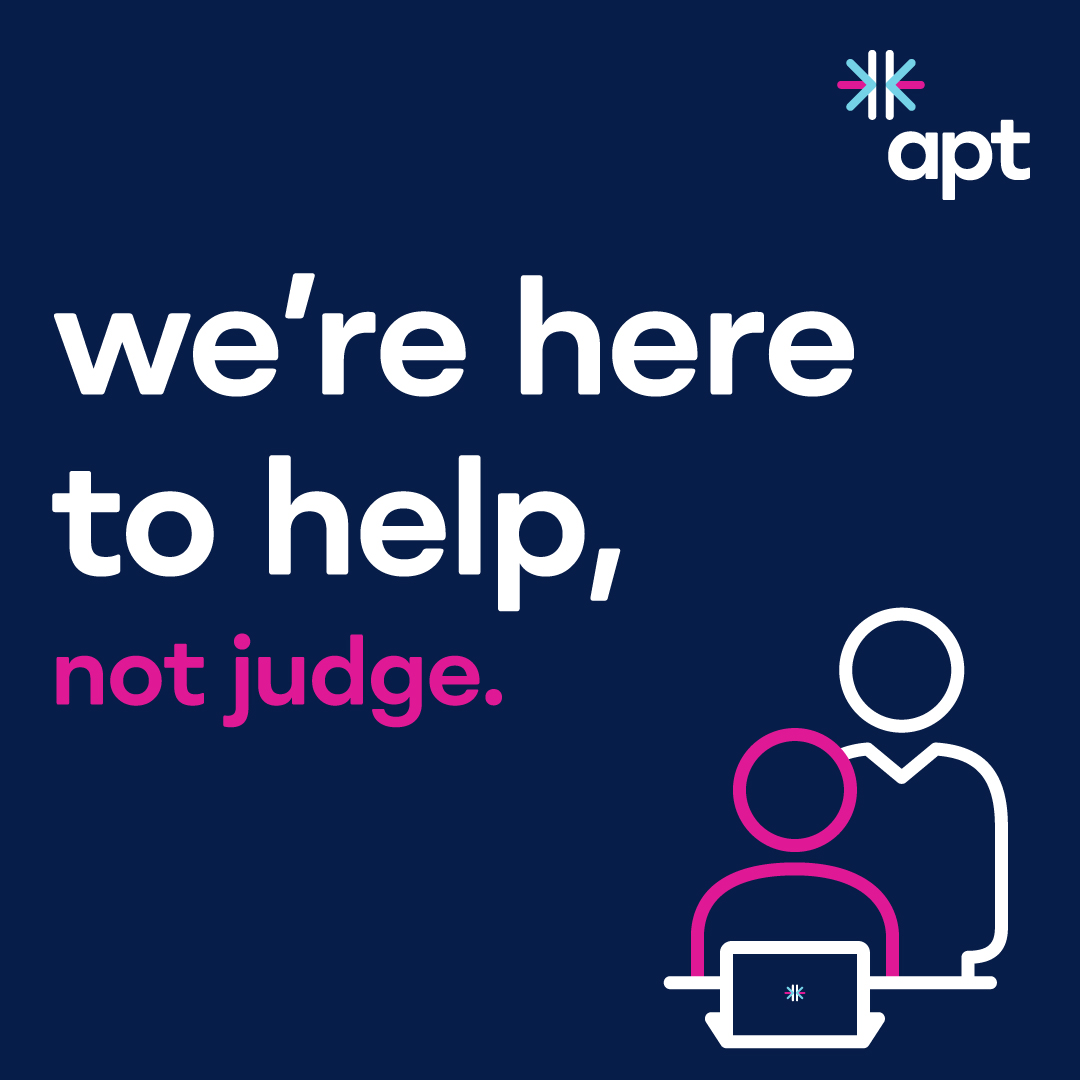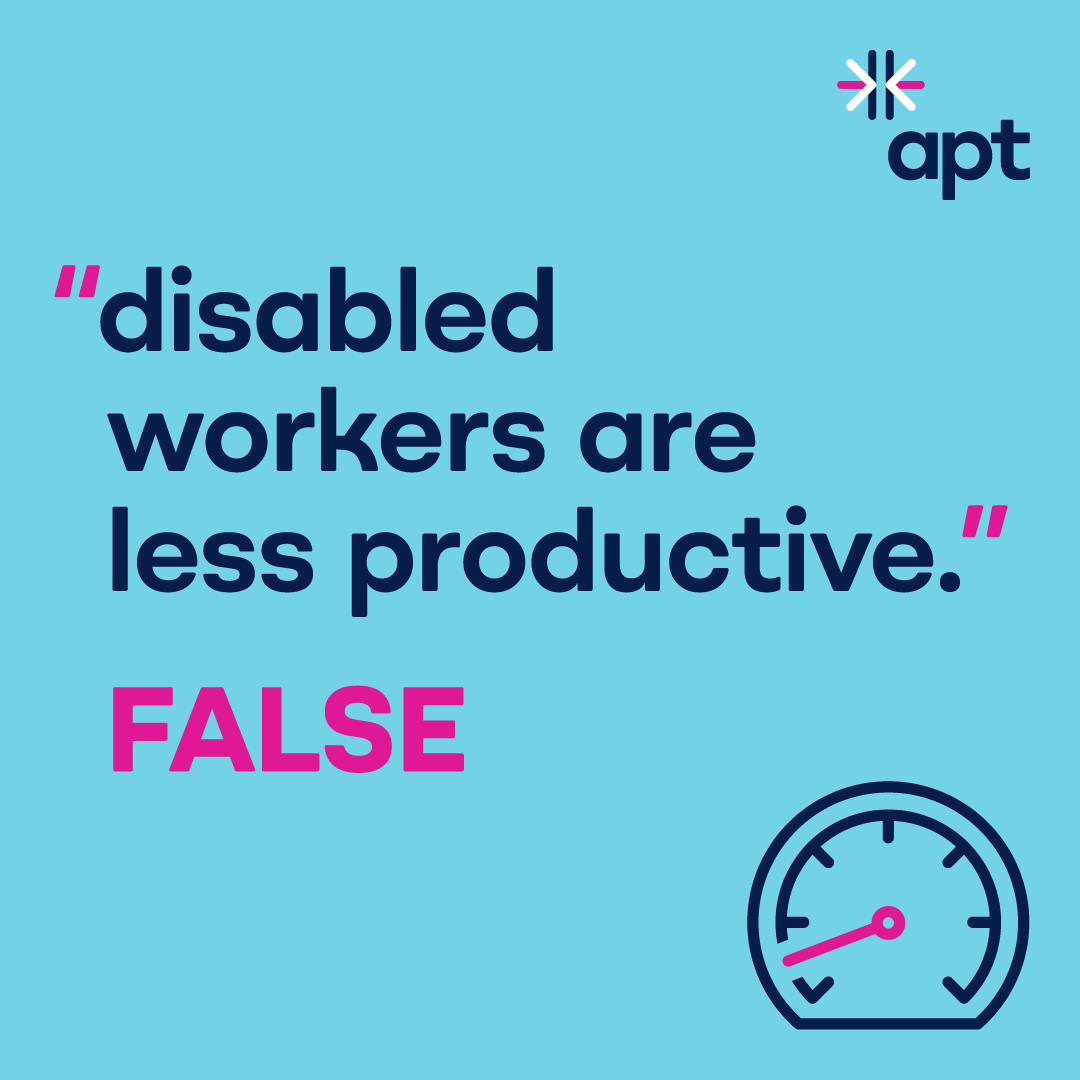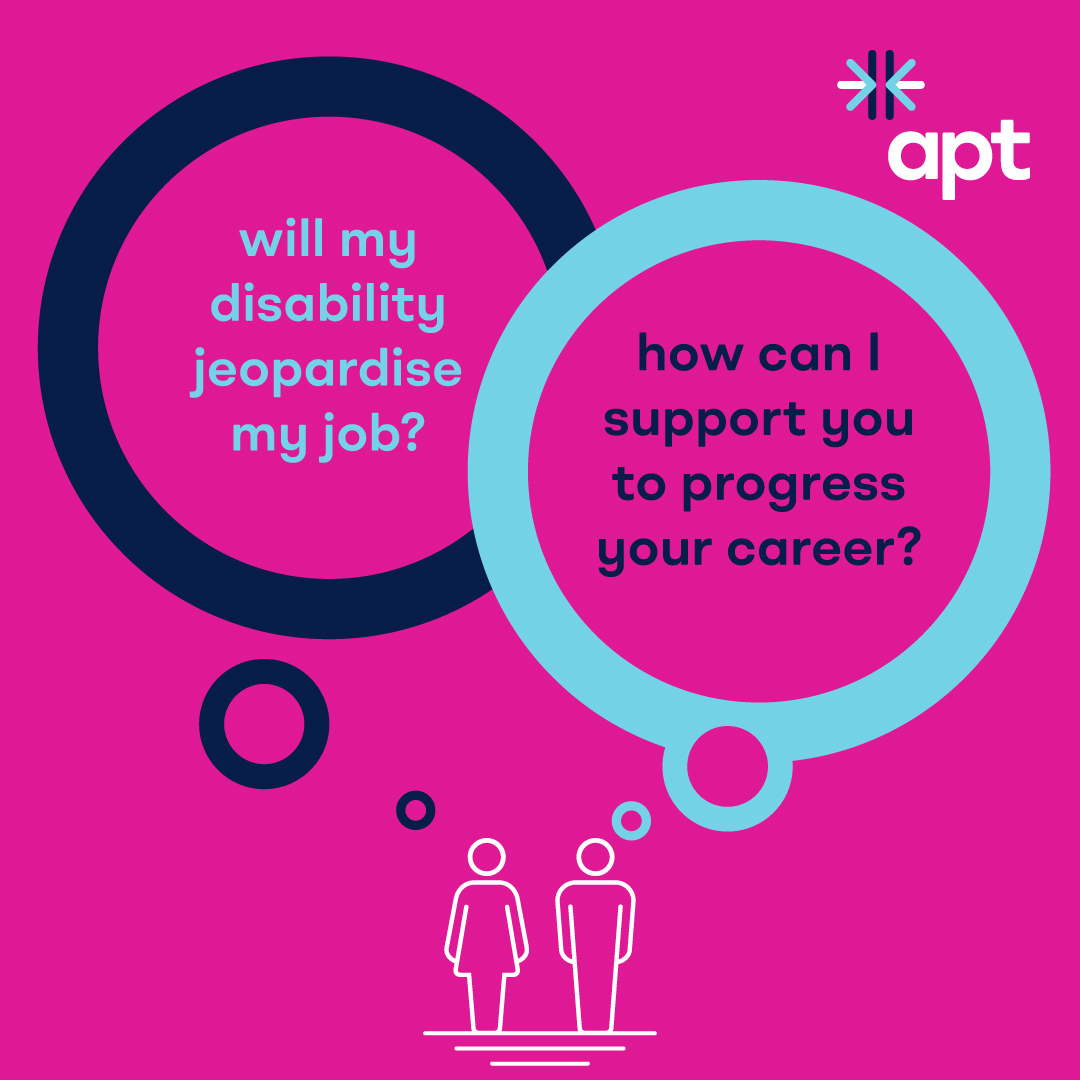Blog: Engaging Employers through Social Media
Apt is Scotland’s first virtual Public Social Partnership; a large and growing partnership of over 60 partners working collaboratively to support the Scottish Government’s aim to half the Disability Employment Gap by 2038. In our work so far, we’ve learned that practical solutions, however innovative, are only part of the picture. The Disability Employment Gap continues to be impacted by workplace cultures driven by fear and a lack of knowledge and confidence.
Disabled people involved in the PSP – particularly via the Retention workstream – support a consistent message that many employers still fear, or actively avoid, workplace conversations with their disabled employees. Conversations that could provide the basis for lasting and supportive retention. This seems to be rooted in the imagined scenarios of conversations being awkward or difficult; worries about saying or doing the wrong thing, causing offence, appearing incompetent or even breaking the law. Some employers worry that hiring disabled people is somehow the role of ‘specialist’ organisations and that they don’t have that specialist knowledge.

The result? Inaction. Less disabled people being employed and staying in work. A continued Disability Employment Gap. We know this needs to be challenged: but we also know that simply being judgemental or critical of employers will not lead to change. Where there is fear, there is a need for support and encouragement.
To this end, we have been developing a collection of images, animations and messages that help us mirror some of the fears and myths at the heart of this issue, but with an overriding message that Apt are here to help, not to judge.

Designing the content has been an inspiring and engaging process bringing together the skills of our design partners See Saw Creative and the voices and experiences of people with lived experience. A series of focus groups took place, with the majority of attendees being disabled people with experience of the workplace and stories to share. In addition to these meetings, participants were offered a variety of ways to contribute, including 1:1 sessions, written or video submissions and support from a third party to capture information.
Experiences varied; some were positive, a great many were not. But inconsistency was a constant theme.
We asked focus group participants to complete open statements like “it would have been easier if my employer has said/done……..”, “it really helped when my employer did…….” or “I just wish my colleagues had known……..” We wanted to get to the heart of what made the difference when it went well, or what might have made the difference when it didn’t.

We are hugely grateful to those who shared their stories. Disabled people told us what words and language made most sense and represented their frustrations or hopes for change. Importantly, disabled people told us that they agreed with the principle of a warm and supportive approach, but also to be bold in our messaging, as this is an important factor in challenging myths. Where language felt somewhat controversial, participants said “do it, this is the language we hear all the time”.
Throughout the creation of this project, we received some excellent feedback from individuals with lived experience who took part in our focus groups. One such person was Heidi, who stated:
“Being involved in this felt hugely important. Having had some really negative and challenging experiences I wasn’t sure I could speak up, but I felt I could say what I needed to say without being doubted or questioned. This was really powerful because it gave me a bit of faith back. I was listened to. I hope that my contribution will help other people avoid the negative experiences that I’ve had”.
Another participant with lived experience who strongly supported the proposed content said:
“Yes! Communication is key. We help each other by being upfront and open about expectations and needs”.

Someone else sharing their experience at the focus group told us how great it was to have “an upfront focus on the fact that employers are missing out on a huge pool of talent!”. All the feedback we gathered was incredibly valuable, allowing us to shape the content of this Social Media Messaging Project around the experiences of disabled people and what they told us was important for employers to understand.
Images and words are powerful, but we know they can be heard, seen and interpreted differently by different people. While we at the Apt PSP have tried to represent the views of everyone in shaping this content, we understand that feedback will vary, and some information will ‘land’ more favourably than others. We hope, at the very least, that this starts conversations where they might not have started, prompts questions that might not have been asked, and encourages people to engage with our aims and services.
So, what do you think? Let us know. We are fully committed to ensuring that more disabled people can thrive in the workplace. If you feel that too, come and chat to us. If in doubt, ask Apt!
Head on over to our Facebook, LinkedIn and Twitter to view and interact with more of this content.